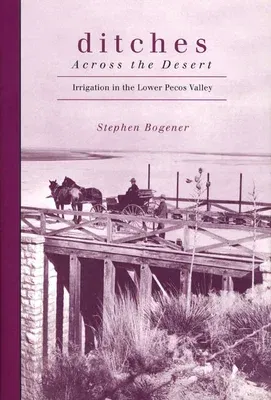Stephen D Bogener
(Author)Ditches Across the Desert: Irrigation in the Lower Pecos ValleyPaperback, 30 September 2019

Qty
1
Turbo
Ships in 2 - 3 days
In Stock
Free Delivery
Cash on Delivery
15 Days
Free Returns
Secure Checkout
Print Length
340 pages
Language
English
Publisher
Texas Tech University Press
Date Published
30 Sep 2019
ISBN-10
1682830292
ISBN-13
9781682830291
Description
Product Details
Author:
Book Format:
Paperback
Country of Origin:
US
Date Published:
30 September 2019
Dimensions:
22.86 x
15.24 x
2.01 cm
ISBN-10:
1682830292
ISBN-13:
9781682830291
Language:
English
Location:
Lubbock, TX
Pages:
340
Publisher:
Weight:
517.09 gm

